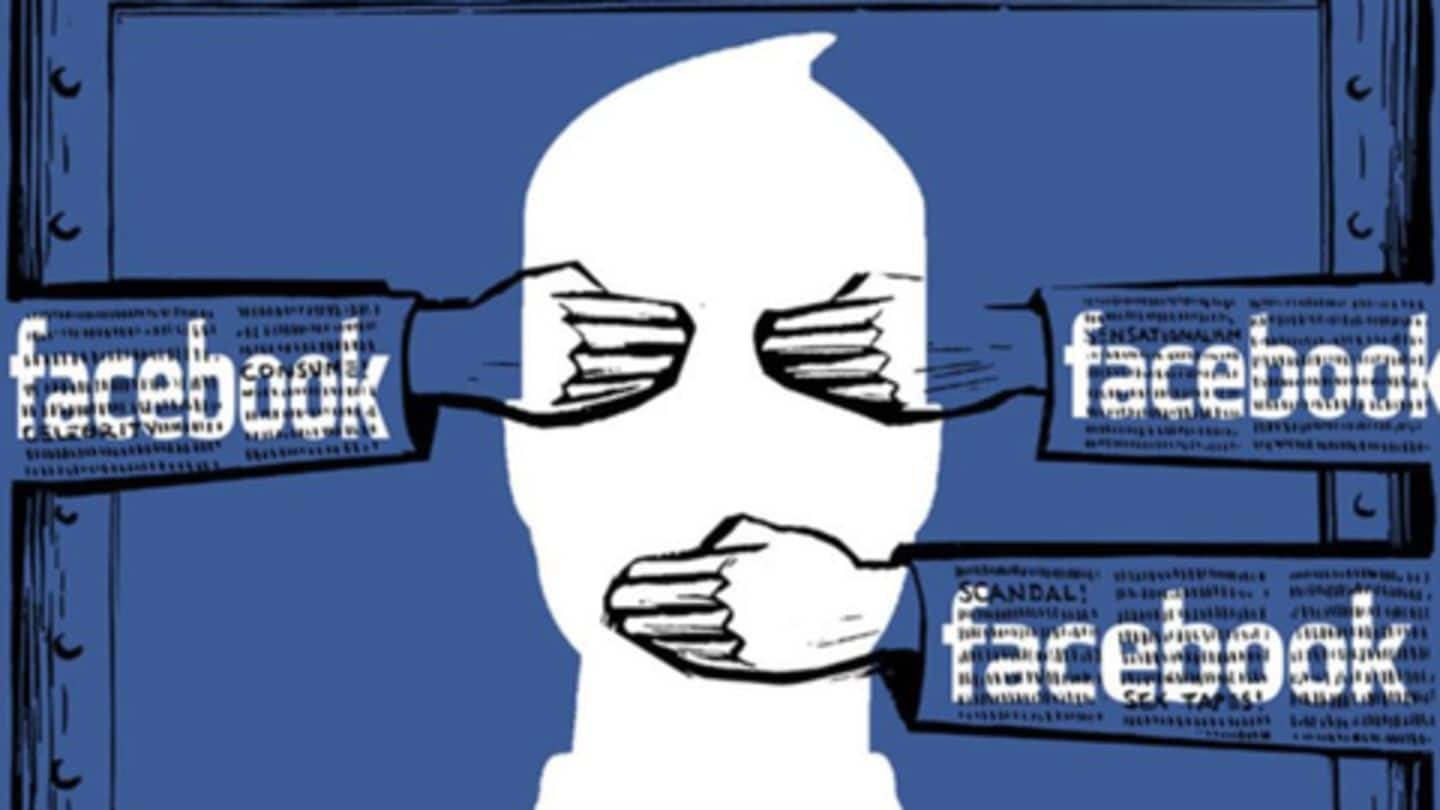
Facebook censors posts on Kashmir, Gods, and Tricolor in India
What's the story
In what comes as a contradiction to Facebook's publicly stated global policy, the social media giant has 20 "locally illegal" markers for India, on the basis of which posts are flagged and proactively removed. These markers include a range of topics, ranging from Kashmir, to 'defamation' of deities, and depictions of the Indian Tricolor on clothing below the waist. Here's more.
Details
Facebook has a 15,000-strong team for moderating Indian content
The aforementioned 'policy' for India came to light after the Indian Express reported it citing internal documents of the company. According to the report, Facebook has a team of 15,000 people who review posts that have been reported by users or tagged as problematic by the company's algorithm. They then decide whether the post should be allowed, taken down, or sent to "content policy teams". Facebook also turned down IE's requests for comments.
Locally illegal
What is considered to be a locally illegal post?
So what is deemed as "locally illegal" content on Facebook? Reportedly, Facebook has three categories of such content - content which directly violates Facebook's content policy, content violating local laws "when the government actively pursues enforcement", and content that could risk Facebook getting banned from a country. Within this large categorization, there are several sub-sections like 'religion', 'national border', 'national symbols' etc.
National border
Posts about separate Kashmir, China's claims are censored
Examples of posts that are deemed as locally illegal include maps of Kashmir and Aksai Chin, posts supporting a separate Kashmiri state, and posts containing terms like "Azad Kashmir, Free Kashmir, Kashmir belongs to Pakistan" etc. Kashmir apart, Facebook also proactively flags posts in India that have references to China's claim to Arunachal Pradesh, Assam, Nagaland, or Tripura.
Religion
Posts defaming religion, including humor, is considered illegal
On the religion front, Facebook flags and often removes posts about images of Prophet Muhammad and posts defaming deities like "negative remarks of mocking images about religious gods & prophets", "comparing deities", etc. Posts "calling for new states based on religious community" also raise alarms among Facebook's moderators, and are flagged and often removed. Operational guidelines also explicitly state that "humor [pertaining to religion] is not allowed".
National symbols
Posts depicting the Tricolor in negative light are also flagged
Finally, when it comes to national symbols, Facebook proactively flags and removes posts showing burning, stamping, and writing on the Indian flag or depicting only a portion of the flag. Posts showing the Tricolor worn on clothing below the waist level are also flagged, as are posts which have images showing the wheel in the Indian Tricolor replaced with Gandhi.
The findings run contrary to Facebook's claims about its policy
What is perhaps the most glaring problem here is that the aforementioned operating guidelines are in contradiction to Facebook's global policy. In several public statements, and in press conferences, Facebook has time and again iterated that its global policy does not consider posts attacking a religion or a belief as hate speech, even in India. However, the recent findings run contrary to Facebook's claims.
India
Interestingly, the government itself had called for 'active' content regulation
Further, the findings come on the back of a December 2018 report by Reuters that said that the Ministry of Electronics and Information Technology (MeitY) had issued new rules to social media firms to 'actively regulate content' in India. The new rules required social media firms operating in India to screen content that could affect the "sovereignty and integrity of India".
Data
However, government requests for removing content have decreased of late
That said, it should be noted that Facebook's transparency reports indicate that requests from Indian agencies to take down content have decreased significantly. In 2015, government agencies had requested Facebook to take down 30,000 posts. In 2017, that decreased to 3,000.